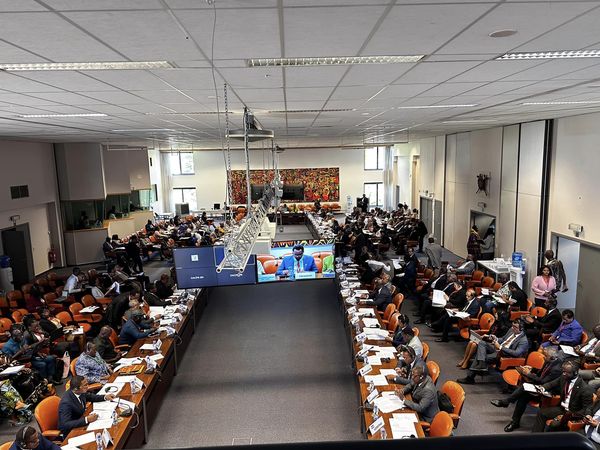The 63rd session of the Parliamentary Assembly of the Organisation of African, Caribbean and Pacific States (OACPS) began on Monday in Brussels, drawing more than 400 delegates from across the member states.
With a robust agenda featuring pressing global issues, delegates are set to delve into discussions on the conflict in Sudan and the dire humanitarian and security situation in the Democratic Republic of Congo. Both matters will require serious attention from the assembly, with diplomatic strategies and potential resolutions likely to be put forward.
In the realm of commerce, the assembly will also conduct a comprehensive review of economic partnership agreements. The scope and nature of these partnerships have far-reaching implications for the economies of OACPS member states and their role in the global economic landscape.
The 63rd OACPS Parliamentary Assembly in Brussels, kicked off on June 19th with over 400 delegates tackling essential subjects: conflict in Sudan, Congo's dilemma, pandemic strategy, AI, and economic treaties. https://t.co/AakFdJXeQs pic.twitter.com/xm7LFuTjCT
— OACPS Secretariat (@PressACP) June 20, 2023
In a nod to the role of emerging technologies, the implications of Artificial Intelligence (AI) for peace and security processes will be discussed extensively. With AI’s potential to revolutionise fields from military operations to diplomacy, humanitarian operations, and its role in maintaining and enhancing peace and security is a subject of paramount interest to the assembly.
Of immediate importance is the state of play of the pandemic treaty texts. As the world grapples with ongoing public health crises, the assembly will scrutinise the current drafts of these treaty texts, which could shape the international response to pandemics in the future.
The session promises to be a critical event, considering the significance and breadth of the topics on the agenda. How the assembly navigates these pressing issues will have profound implications for the OACPS member states and the global community at large.
SOURCE: OACPS/PACNEWS














